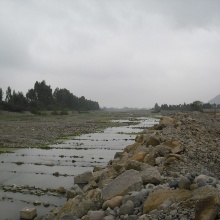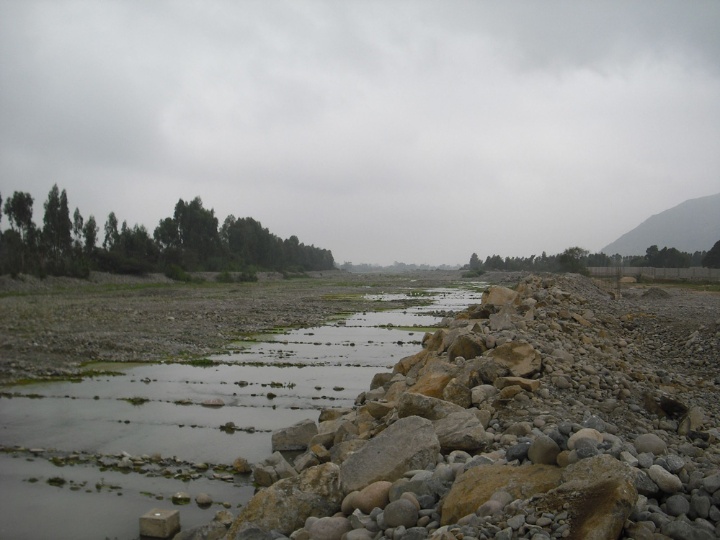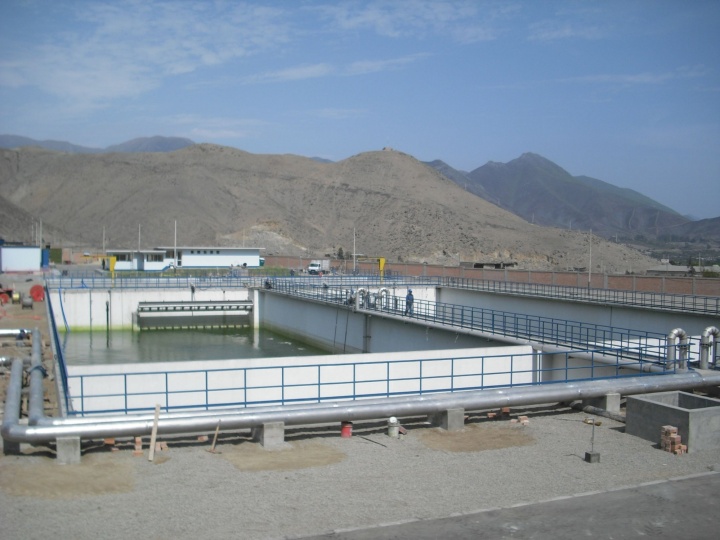Climate change is exacerbating the lack of water, especially in regions that are already struggling with water shortages. At the same time, worldwide demand for clean drinking water, irrigation water for agriculture and process water for industry is increasing. In the TRUST joint project, experts from various disciplines are therefore working together and developing holistic planning tools as well as novel, integrated water supply and sanitation concepts for sustainable water supply, with priority being given to drinking water supply. It is coordinated by the Center for Interdisciplinary Risk and Innovation Studies (ZIRIUS) at the University of Stuttgart.
Achieving sustainable water resources management
Scientists in the fields of engineering and the natural and social sciences from Stuttgart and Karlsruhe want to work together with four practice partners to achieve these goals:
- Improved methods to record the water quantity and water quality of surface waters in more detail.
- Participation procedures to negotiate the interests of various stakeholders.
- New concepts for more efficient water supply and sanitation systems.
TRUST combines soil and satellite-based hyperspectral remote sensing, water balance modelling and strategic decision-making instruments to develop and plan new supply and disposal concepts in the water sector. Taking the example of Lima in Peru, which regularly suffers due to the extreme weather effects of El Niño, technical solutions adapted to the local conditions are being developed for sustainable water resources management.
Improved measurement methods lead to better decisions
In Lima, the database on the quantity and quality of water is, as in many areas of the world suffering from water shortages, insufficient. Suppliers and planning authorities can only achieve good water resource management if they know the exact condition of their waters. Because of this, TZW (Technologiezentrum Wasser – Water Technology Center) is initially working on the following: the DVGW Water Technology Center Karlsruhe and the Karlsruhe Institute of Technology (KIT) together with the Institute for Water and Water Resource Development (IWG) and the Institute of Photogrammetry and Remote Sensing (IPF), in cooperation with the local stakeholders, have created a local data basis through the development of a measurement network, remote sensing and measurement campaigns. OTT Hydromet provides modern measuring instruments to register water quantity and water quality, as well as meteorological values such as precipitation. The practice partner, Disy Informationssysteme, has created an application with which the population, as well as suppliers, planners and farmers, can retrieve the available measurement data online.
Negotiating interests using new participation procedures
Decisions made by stakeholders in the Peruvian water sector can lead to usage conflicts, for example between the industry and the population. In order to avoid this, TRUST analyses conflicts and different interests are negotiated using special group methods. The Center for Interdisciplinary Risk and Innovation Studies at the University of Stuttgart (ZIRIUS) is developing participatory methods for this together with the consulting company, decon international. This will provide a better understanding of where the various stakeholders see problems in the water system. What is new is the combination of individual interview techniques and systemic analysis procedures, which help the researchers to pinpoint the values and preferences of stakeholders.
Decentralised concepts and precise risk analysis
Building on previous knowledge, the Institute for Sanitary Engineering, Water Quality and Waste Management at the University of Stuttgart (ISWA), TZW, Disy and the Ingenieurbüro Pabsch & Partner (ipp) engineering firm, are jointly developing new approaches to water supply, water re-use, the recycling of water and sewage disposal, with the aim of using the available, limited water resources as efficiently as possible. Under the premise of efficient use, with the priority being to secure the supply of drinking water and also to satisfy the water requirements of competing sectors, optimised overall concepts are being developed that may comprise a system made up of decentralised and centralised systems or modules. Both overall concepts as well as modules are coordinated with local partners. TZW has also developed a software-based decision support system (EUS) in cooperation with Disy. This helps local utility companies to find out where areas with a high risk of contamination are and what measures they need to take to ensure safe drinking water supply despite this.
Developing individual solutions should become self-perpetuating
In order to anchor the developed methods and results in the long term, decon international is supporting the German project partner in the development and implementation of training concepts. The aim is primarily to put Peruvian educational institutions in a position to provide training themselves. A special guide makes it possible for supply companies or planning authorities to develop modular concepts themselves in the future, for example. Other regions with water shortages can transfer the management and training concepts to their circumstances and further develop these on an individual basis.
The joint project, "Drinking water supply in prosperous water shortage regions in a sustainable, equitable and ecologically compatible manner (TRUST)", is funded within the context of the "Grow - Global Water Resources" funding measure in the "Research for Sustainable Development (FONA)" programme by the Federal Ministry for Education and Research (BMBF).
Contact person:
Christian D. León (TRUST Project Coordinator)
Center for Interdisciplinary Risk and Innovation Studies at the University of Stuttgart
(ZIRIUS)
Telephone: 0711 685-83974, E-mail




